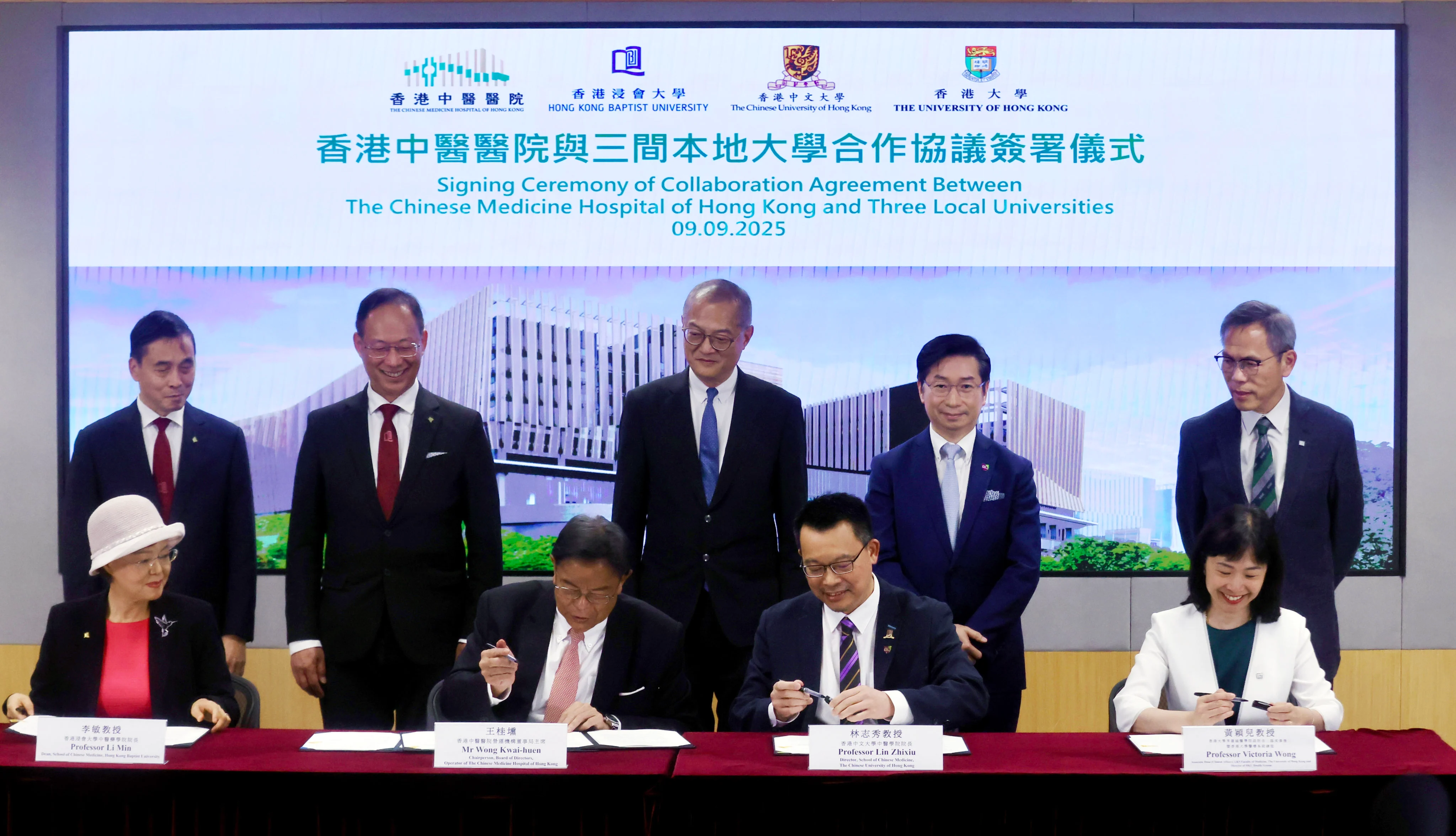By Leopold Chen
Copyright scmp

Hong Kong’s first traditional Chinese medicine hospital will start operating in December, with the city’s health chief expecting it to play a central role in the industry’s development regionally and nationally.
Secretary for Health Lo Chung-mau also said on Tuesday that he hoped the Chinese Medicine Hospital of Hong Kong would be a “bridgehead” for the sector’s march overseas.
The University of Hong Kong, the Chinese University of Hong Kong (CUHK) and Baptist University signed collaborative agreements with the hospital on Tuesday.
“I hope the three universities can leverage their connections with other Chinese medicine institutions to strengthen the hospital’s cooperation with mainland China and overseas,” Lo said.
“This will enable the hospital as a core engine of traditional Chinese medicine’s development in the Greater Bay Area and even across the nation.”
The bay area is Beijing’s initiative to link Hong Kong, Macau and nine cities in neighbouring Guangdong province into an economic powerhouse.
The hospital in Tseung Kwan O will start operating on December 11, and to begin with, will mostly offer outpatient consultation and day care services. Inpatient services are expected to be available later.
Its chief executive, Professor Bian Zhaoxiang, said he expected the hospital to help ease the pressure on the city’s strained public medical system.
“Chinese medicine is good at addressing pains, strokes and tumours,” he said.
“These diseases have placed a heavy burden on the public medical system and we hope to ease such pressure with the service of the Chinese medicine hospital.”
Under the agreements with the universities, the new facility will be designated as the teaching hospital for their Chinese medicine schools. The institutions will dispatch experts to support clinical services at the hospital and conduct research there.
Professor Lin Zhixiu, director of the school of Chinese medicine at CUHK, said research conducted there would focus on chronic diseases, especially those stemming from urban lifestyles such as allergic rhinitis, gout, gastritis and insomnia.
“[We are looking to] cultivate Chinese medicine talents with international horizons, and contribute to the modernisation and internationalisation of Chinese medicine,” he said.
The hospital will provide internship and practicum opportunities for Chinese medicine students from the three universities.
Professor Li Min, dean of the Chinese medicine school at Baptist University, said the hospital would provide students with a good platform for clinical studies and practices given the large number and complexity of cases.
“This will not only enhance our students’ ability in clinical diagnosis, but will make sure our teaching materials are up to date,” she said.
Currently, students at the three Chinese medicine schools need to undergo year-long internships in mainland China before they can graduate.
Li said that despite the opportunities offered by the Hong Kong hospital, given that it will be in the initial stage of operation, students would still need to go across the border for internships.
Funded and built by the government, the hospital will be run by Baptist University. The government will subsidise around 50 to 65 per cent of the total volume of services.
Add-on services priced at “market-oriented” rates would also be available, the government said.
The hospital is equipped with 70 consultation rooms, 45 therapy rooms and 400 beds. It will provide a wide range of services, including internal medicine, surgery, gynaecology, paediatrics, orthopaedics and acupuncture.
Treatments will be classified into pure traditional Chinese medicine, traditional Chinese medicine dominant and Chinese-Western medicine collaborative ones.



